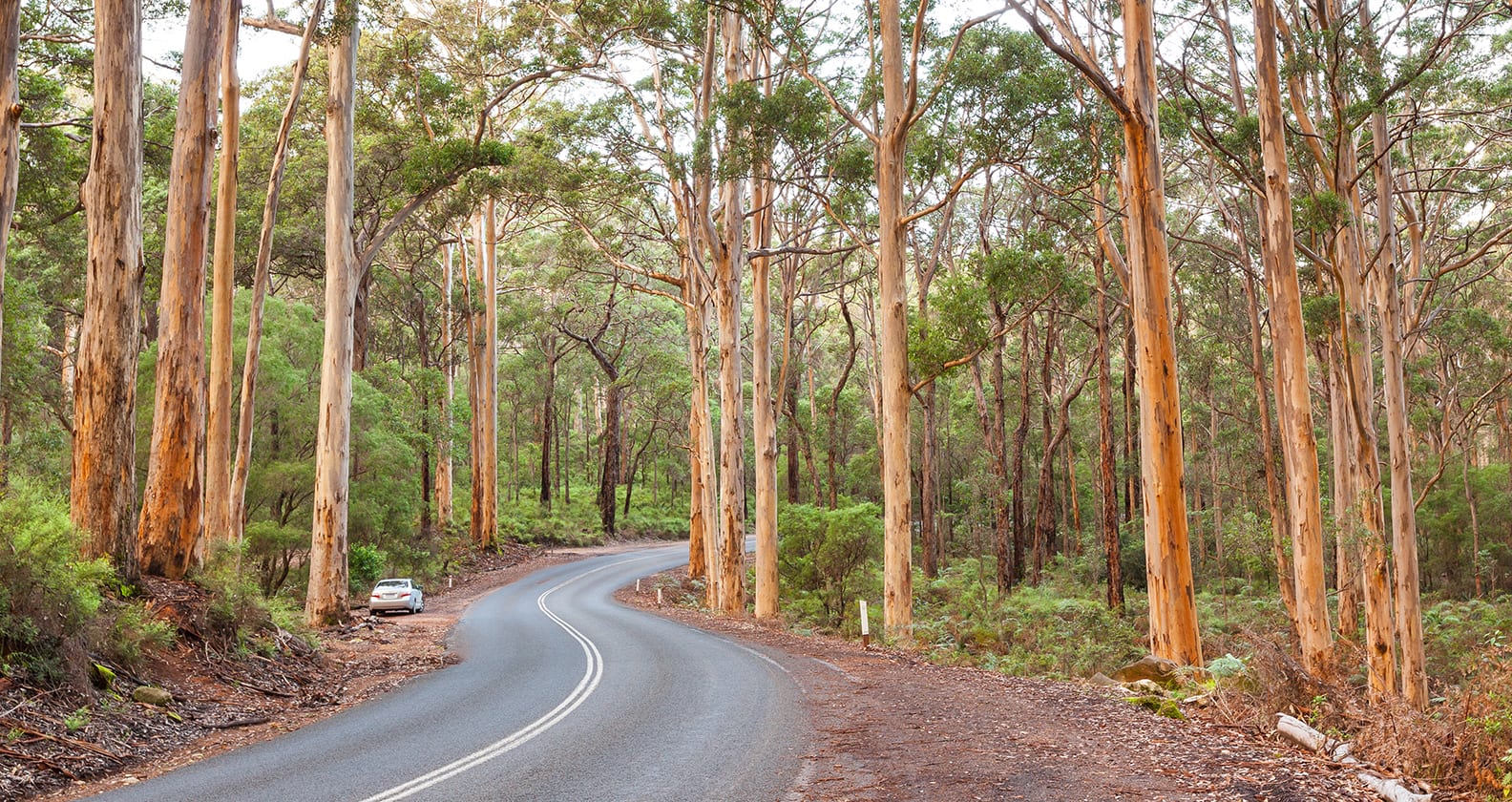The COVID-19 pandemic decimated tourism operators around the world in 2020. But in Western Australia’s Margaret River region, operators have bucked the trend, with many recording 2020 as their best ever winter season.
The renowned destination, just three hours south of Perth, had a flood of Western Australian visitors last July, shortly after the state government transitioned to Phase 4 of initial lockdown restrictions and launched its successful Wander out Yonder campaign.
Accommodation data collated by Australia’s South West Sustainable Tourism Observatory, run by Curtin University’s Tourism Research Cluster, showed that intrastate tourists filled an unprecedented 61% of rooms, paying more than $200 per night. By comparison, the month of July is normally considered the region’s ‘low season’ with tourists filling just 50% of available rooms and paying an average of $170 per night.
Associate Professor Michael Volgger leads the tourism observatory, which is endorsed by the United Nations World Tourism Organisation (UNWTO). He says closing WA’s border was a boon for local tourism in some regional towns, as Western Australians traded their international travel plans for local attractions like Margaret River’s wineries or the renowned Busselton Jetty.
“Australian outbound tourists outnumber international tourists coming to WA and Australia. So, if you close the borders, places that depend on leisure tourism such as many regional areas may not lose because your outbound tourists are now being encouraged to travel within Australia,” he says.
“There was a marked spike in visitation to some regions from the time when West Aussies could only travel within their own state. Some operators in Margaret River found it challenging to cope, actually.”
Ben Tassone, who manages the award-winning Margaret River Distilling Company saw a 15% surge in profit, compared with previous years.
“I was really happy to see the tourists back after the 2020 lockdown,” he says.
“The biggest issue was catering for the tourists. Even though I worked six or seven days a week and my staff worked long hours, we were generally understaffed during the season.”
Monitoring the impact of COVID-19
Earlier in the year, Australia’s South West Sustainable Tourism Observatory worked with the RAC and WA’s Parks and Wildlife Service to determine strategies that could boost tourism in the region post-lockdown.
The study found that tourism operators could offset negative consumer sentiment towards travel by offering travel discounts, flexible cancellation policies and social distancing measures. Advertising would be more effective using messaging that encouraged Western Australians to support local businesses and dream about their next getaway.
“Interestingly, each of these as a single measure weren’t so strong, but together they did counteract the main reasons why tourists wouldn’t have travelled down south – which were fears of a second wave of COVID-19 and [possibly infected] international tourists coming into the country at the time,” Dr Volgger says.
The findings helped inform the policies of the RAC, the Parks and Wildlife Service and the observatory’s other partners, including the WA State Government, Tourism WA, Australia’s South West, the Margaret River Busselton Tourism Association, and Expedia.
“The idea is to provide timely evidence to our partners so they can make the best possible tourism decisions – just like we’ve all seen our chief health officers and politicians make decisions based on the latest health data during the pandemic.”
Ensuring long-term sustainability
Following the winter season, the team worked with the Shire of Augusta-Margaret River to analyse the effect of increased tourist numbers, by conducting the region’s first survey of residents’ attitudes towards tourism.
They found that residents were pleased with the number of tourists, but 94% of respondents wanted the tourists to be more dispersed across the region, instead of being concentrated in towns like Margaret River, Dunsborough and Busselton.
Residents also wanted authorities to better monitor the impact of tourism, particularly on the natural environment.
Shire Sustainability Economy Officer Saul Cresswell says the findings support the council’s own efforts to encourage more sustainable tourism practices in the region, as it works towards achieving ECO Destination Certification from Ecotourism Australia.
“The certification is about managing tourism impact in a way that benefits both the local community and the environment,” says Cresswell.
“The results show we’re on the right track as we begin to look at key ecological assets in the region, what effect tourist visitation has, and how we can promote sustainable travel.”

Dr Volgger says his team are now working with local tourism providers to build a database of best sustainable practices in the region.
It is welcome return to normal for the observatory team. Since launching as the only Australian member of the UNWTO’s network of sustainable tourism observatories in late-2019, the team had planned to research ways of boosting sustainable tourism development in the region, before COVID-19 somewhat shifted their plans.
“This is a region that already has a lot to teach the world, in terms of sustainable tourism development. Many local businesses buy local wine and food, support Indigenous-owned businesses, and there’s a focus on energy and water efficiency. The residents are also conscious that tourism is one of the pillars of why they’re able to make a living there,” Dr Volgger says.
“We’re hoping to compile tangible examples of businesses with really good practices that other businesses can receive guidance from, to help the region thrive even more in the future.”
Read more about Australia’s South West Sustainable Tourism Observatory.
Profiles
Associate Professor Michael Volgger leads Australia’s South West Sustainable Tourism Observatory and is Co-Director of Curtin University’s Tourism Research Cluster. His areas of expertise include tourism product development, destination management, sustainable consumer behaviour, the sharing economy and inter-organisational cooperation. He has been involved in several applied tourism research projects in both Australia and Europe.
The Tourism Research Cluster helps to solve tourism problems and bring together the insights of industry, government and academic tourism experts working in Australia and internationally. It runs Australia’s South West Sustainable Tourism Observatory. Members of the group include Professor Ross Taplin, Professor Christof Pforr, Titania Suwarto and Sara Cavalcanti Marques.



